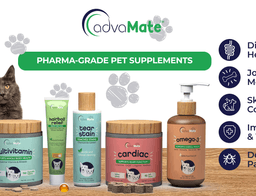
The shifts in the woman’s body require an increase in nutrient intakes in order to support the body in the long run. If the woman is deficient in these nutrients, it may lead to serious diseases such as osteopenia, osteoporosis, anemia, loss of teeth, body pain, mood swings, and more.
Nutrient deficiencies can alter body functioning at a basic level, including nerve signaling, digestion, and metabolism. Shockingly, an estimate of 75% of women would have nutrient deficiencies if vitamin supplements did not exist, according to Vucinic Kontic from the Institute of Gynecology and Obstetrics.
Below are details on five essential vitamins for a woman’s health.
VITAMIN A
Vitamin A is naturally found in foods such as beef liver, spinach, carrots, spinach, eggs, Brocolli, and cantaloupe. Its benefits are numerous and include the following:
- Prevent eye related disorders;
- Promote brain health, fight depression, delay progression of age-related macular degeneration;
- Crucial component of pregnancy and breastfeeding by creating healthy development of newborn, lung development and building a strong immune system;
- Protects the skin, prevents the formation of UV-induced erythema or skin irritation;
- Improve respiratory health.
VITAMIN C
Vitamin C nutrient helps in reducing stress. Foods rich in vitamin C include oranges, red pepper, and kale. Its other benefits include:
- Prevents the common cold and flu from developing into more serious ailments;
- Cardiovascular benefits such as lower chance of stroke decreases “bad” cholesterol, improve blood vessel dilation;
- Helps with age-related conditions such as macular degeneration, inflammation, risk of cancer and other cardiovascular diseases;
- Improves vision by increasing blood supply to ocular areas;
- Protects from damage caused by free radicals, toxins, and pollutants;
- Can improve mood.
VITAMIN E
Vitamin E is an antioxidant that fights cholesterol oxidation. When cholesterol oxidizes, it becomes dangerous. Cholesterol is naturally required by the body for proper functioning in cells, nerves, and hormones. Vitamin E can reduce free radical damage, inflammation, and symptoms associated with aging. It is found naturally in almonds, spinach, sweet potato, and sunflower seeds. Here are more of its benefits:
- Helps with hormonal balance by relieving hormonal imbalance symptoms such as PMS, weight gain, allergies, anxiety, and fatigue;
- Age related benefits such as protection from macular degeneration, protect against Alzheimer’s and the risk of dementia;
- Improve blood circulation, strengthens capillary walls, improve physical endurance and muscle strength;
- Critical during pregnancy to protect fatty acids and control inflammation;
- Thins blood which reduces risk for sunstroke, coronary artery disorder, and heart disease;
- Improves health of skin and hair.
VITAMIN K2
Vitamin K2 is found in green leafy vegetables such as kale and fermented dairy and soy. Its benefits are:
- Helps regulate where calcium goes in the body – critical for joint health and preventing heart disease;
- Treat osteoporosis and steroid-induced bone loss;
- Stimulate growth of teeth by activating the protein osteocalcin.
VITAMIN Bs
There are several types of vitamin B, each with their own numerous and specific benefits, making it one of the most crucial vitamins to receive. In general, vitamin B can be found in beef, eggs, milk, tuna, liver, sardines, avocado, and more.
- Vitamin B1, also known as Thiamin, helps to produce energy
- B2 is also known as Riboflavin and helps with energy production, vision, and skin health.
- B3, Niacin, helps with energy production, skin health, and the nervous and digestive systems.
- Pantothenic Acid is also known as Vitamin B5, and it is available in many food sources. It also supports cellular energy production and is needed to metabolize carbohydrates and to produce red blood cells and steroid hormones.
- B6 keeps bodily functions operating at best by forming red blood cells and brain chemicals
- B12 helps body pathways to produce cellular energy and is needed for DNA synthesis, proper red blood cell formation, and nervous system performance. B12 deficiencies are typically found in the elderly, vegans, and breastfed babies of vegan mothers since B12 is only found in foods from animal sources.
Age and health conditions may impact your risk of developing a nutrient deficiency. To better ensure you don’t have a nutrient deficiency, eat foods that are rich in vitamins and minerals and obtain supplements to avoid a nutrient deficiency and have a more healthy life.
Suggested AdvaCare Product: Vitamins and minerals range
Contact AdvaCare to receive our new catalog of supplements including the above vitamins.
Don't want to miss the next AdvaCare article?

Recommended Content

Pet Supplements Manufacturer: Functional and Premium Ingredients with USA Quality Standards & Traceability


Global Pet Supplement Market Trends: Why Distributors are Shifting to Premium Grade Quality


TickZero™: High-Margin, 12-Week Flea & Tick Protection, Distributor Opportunity in LMICs
